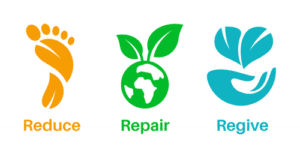
Creating a Sustainable Culture in the Workplace: Why Education is Key
In the rapidly evolving landscape of business, creating a sustainable culture has emerged as a critical imperative.
As environmental concerns continue to take centre stage, organisations are recognising the need to align their operations with eco-friendly practices.
The key to achieving this transformation lies in education – the cornerstone for cultivating a sustainable culture within the workplace.
This article explores the various dimensions of this vital strategy, from reducing anxiety to increasing loyalty, recruiting better staff, fostering understanding, and appealing to stakeholders.
Creating a Sustainable Culture: Build your skills base
A business is only as good as its workforce, so investing in people so they can remain happy and maximise their potential is a key aspect of all good businesses. Education and training enable employees to gain new skills and knowledge, which they can then apply in their day jobs. Developing the skills of your team can help your company to embrace innovation, increase your productivity and improve your bottom line.
Creating a Sustainable Culture: Increasing Loyalty
Employees are more likely to stay loyal to a company that aligns with their values. Sustainable culture fosters a sense of shared ethical commitment, allowing employees to connect with their work on a deeper level. According to Forbes, companies dedicated to sustainability experience 55% more employee engagement, translating into higher job satisfaction, and reduced turnover rates.
Creating a Sustainable Culture: Recruiting Better Staff
In the competitive job market, recruiting top-notch talent is a challenge every organisation faces. However, a sustainable culture can be a powerful recruitment tool. Prospective employees are increasingly seeking employers that demonstrate genuine concern for the planet and society. Companies with a clear commitment to sustainability are more likely to attract like-minded individuals who are not just looking for a job, but a meaningful career.
Creating a Sustainable Culture: Increasing Understanding
Education plays a pivotal role in increasing understanding among employees about sustainability issues. When individuals grasp the environmental impact of their actions, they are more likely to contribute to solutions. An informed workforce can collaborate to develop innovative internal solutions that streamline processes, reduce waste, and enhance efficiency. This not only reduces costs but also contributes to a collective sense of achievement.
Creating a Sustainable Culture: Appealing to Consumers, Investors, and Stakeholders
A sustainable culture not only resonates with employees but also holds immense appeal for consumers, investors, and stakeholders. Research by Nielsen reveals that 73% of consumers are willing to pay more for products and services from environmentally responsible companies. Aligning with sustainable values enhances brand reputation, opens up new consumer segments, and attracts ethical investors.
Creating a Sustainable Culture: Meeting Legislation and Getting Ahead of the Game
Regulatory bodies around the world are tightening their grip on environmental standards. Creating a sustainable culture isn’t just about meeting current legislation; it’s about future-proofing your business. By embedding sustainability into your workplace culture, you’re not only complying with regulations but also positioning your company as an industry leader, ahead of the curve in the race toward a greener future.
Got a question?
Call us on - 0161 399 0356
Research Speaks: Nielsen and Forbes Insights
Data from Nielsen corroborates the commercial value of sustainability. A global survey found that 66% of consumers are willing to pay more for sustainable products. Forbes Insights reinforces this, stating that companies with strong sustainability commitments tend to outperform their peers financially and in terms of market share.
In the words of environmental activist Wendell Berry, “The Earth is what we all have in common.” Creating a sustainable culture harnesses this commonality, promoting individual and collective action to preserve our planet and benefit your business.
Community and Individual Change: A Catalyst for Business
Creating a sustainable culture is not limited to business outcomes; it’s also a catalyst for positive community and individual change. As your organisation prioritises sustainability education, this knowledge permeates into employees’ personal lives and influences their communities. By empowering individuals to make eco-conscious choices, your business becomes a driving force behind a larger movement toward a greener planet.
Wrap-Up and Call to Action
In today’s world, a sustainable culture isn’t just a buzzword – it’s a necessity for businesses that aim for longevity and relevance. Education serves as the linchpin for transforming workplaces into hubs of eco-conscious innovation. From reducing anxiety to attracting better talent, understanding consumer preferences to staying ahead of regulations, creating a sustainable culture lays the foundation for success on multiple fronts.
Play It Green helps your business engage and educate its team on sustainability. Not only that but we provide the tools and services to embark on your journey of sustainability. From footprint reporting to reduction plans, from accreditation to marketing our platform provides you with a one stop shop.
Sign up or get in touch to discover how our climate positive workforce can help your organisation initiate and sustain a culture change that benefits both your business and the planet. Let’s embark on this journey together, creating a brighter, greener tomorrow through informed action today.





